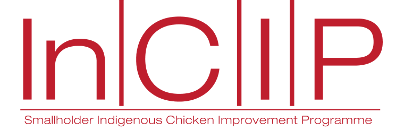Our History
Discover the rich history of the Centre of Excellence for Livestock Innovation and Business (CoELIB).
The CoELIB Project (hereinafter referred to as CoELIB) stands for the ‘Centre of Excellence for Livestock, Innovation and Business’.
CoELIB has its origins in successive projects that have enabled it to evolve and put in place the necessary capabilities, build the requisite infrastructure, networks, capacity-building programmes and material. These successive projects were funded by Egerton University, the International Foundation of Science (IFS), United States Agency for International Development (USAID), United States Department of Agriculture (USDA), World Bank - through the Kenya Agricultural Productivity Programme (KAPP), European Union (EU), African Union Commission (AUC), UK government’s Department for International Development (DFID), British Council, The Netherland’s Koepon Foundation, Netherlands Organization for International Cooperation in Higher Education (NUFFIC), the Federal Ministry for Economic Cooperation (BMZ) and Development and the German Research Foundation (DFG), just to cite a few.
The implementation of CoELIB began in 2008 during the enactment of a project on the characterization of indigenous chicken that was funded by the IFS and later by the World Bank until 2011. In 2012, the EU, through the AUC, funded CoELIB to improve the productivity of indigenous chicken for enhanced livelihoods and food security in Sub-Saharan Africa under the Indigenous Chicken Improvement Programme (InCIP). The programme was implemented in Kenya and Malawi (in collaboration with Lilongwe University of Agriculture and Natural Resources - LUANAR). Among the programme’s activities included promotion of partnerships and agribusiness development, enterprise development and the development of an agribusiness incubation centre.
This centre created an environment for the growth of businesses and innovative ideas in the indigenous chicken sub-sector by identifying problems affecting agribusiness in the value chain and, thereafter, providing relevant information, links with relevant organizations and networks in the public and private domain while attracting funding and investment. The centre initially incubated and funded five startups that gained connectivity through a dense network of linkages to encourage the sharing of exposure and learning of new ideas and innovations.
In 2012, USAID funded the Trilateral Partnership for Food Security which was implemented by USDA in collaboration with the Ohio State University (USA), Langston University (USA) and Punjab Agricultural University (India). That project improved linkages with the private sector, teaching/learning programmes to increase the employability of graduates and research and outreach to farmers to increase productivity and income. That project encouraged the incorporation of media aspects (which later grew to the current CoELIB Media) in teaching, learning and business development activities, therefore, contributing to the current pillars of CoELIB.
In 2014, the EU, through its ACP-EU Co-operation Programme in Science and Technology (S&T II), provided funding for an initiative that focused on strengthening capacity for participatory management of indigenous livestock to encourage agricultural innovation in Eastern, Southern and Western Africa. This initiative was coordinated by Egerton University in Kenya in collaboration with LUANAR and Obafemi Awolowo University (Nigeria). One of the key tasks of this initiative was to establish a multipurpose centre (Livestock Innovation and Business Centre) in Kenya with offices in Malawi and Nigeria to continue building on existing Science, Technology and Innovations (STI) capacity and learning and foster innovation and business development. That project funded the construction of the administration building. The name of the centre was later changed to ‘Centre of Excellence for Livestock, Innovation and Business (CoELIB)’ since it had been used before and to conform with earlier projects.
CoELIB builds on existing capacity and fosters innovation and agri-business development. CoELIB was officially launched in June 2016 at the Inaugural World Congress on Innovation for Livestock Development that was held in Nakuru, Kenya. Key among its prospects was to ensure that it was able to sustain itself and operate as a project. In 2016, through the Netherlands Initiative for Capacity Development in Higher Education (NICHE), NUFFIC provided resources for capacity-building for strengthening the livestock value chain. The project ensured that CoELIB has a regional scope, is labour-market-oriented, gender-sensitive and benefits young graduates and innovative entrepreneurs.
CoELIB has now redefined itself and broadened its scope and builds on existing knowledge and capacity to foster innovation and business-oriented actions in different sectors. It recognizes that a collection of individuals, assets and other resources do not yet constitute a potent organization that can make an impact on livelihoods. Therefore, CoELIB harnesses capabilities into a sustainable organizational form that can contribute to the well-being of people for inclusive socio-economic development and empowerment of youth.
CoELIB exemplifies a well-implemented and sustainable project that has attracted funding over the years to support its initial activities and more while building on its pillars and core values.
2008
The idea to establish a hub at Egerton University is born during the International Foundation of Science (IFS) project
2008
2012

INCIP is funded by the European Union through the African Union Commission. It is implemented in collaboration with LUANAR.
2014

The European Union provides funding for an initiative that is focused on strengthening capacity forr participatory management of indegenous livestock to encourage agricultural innovation in Eastern, Southern and Western Africa.
2014
2016

NICHE and NUFFIC fund a project on capacity-building for strengthening the livestock value chain.
CoELIB is officially launched in June at the Inaugural World Congress on Innovation for Livestock Development.


